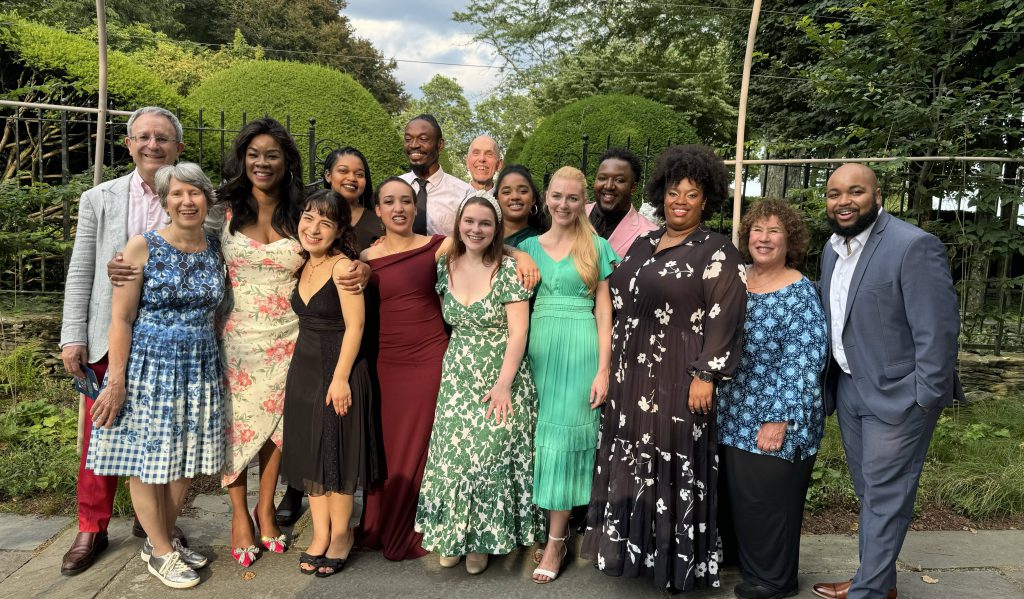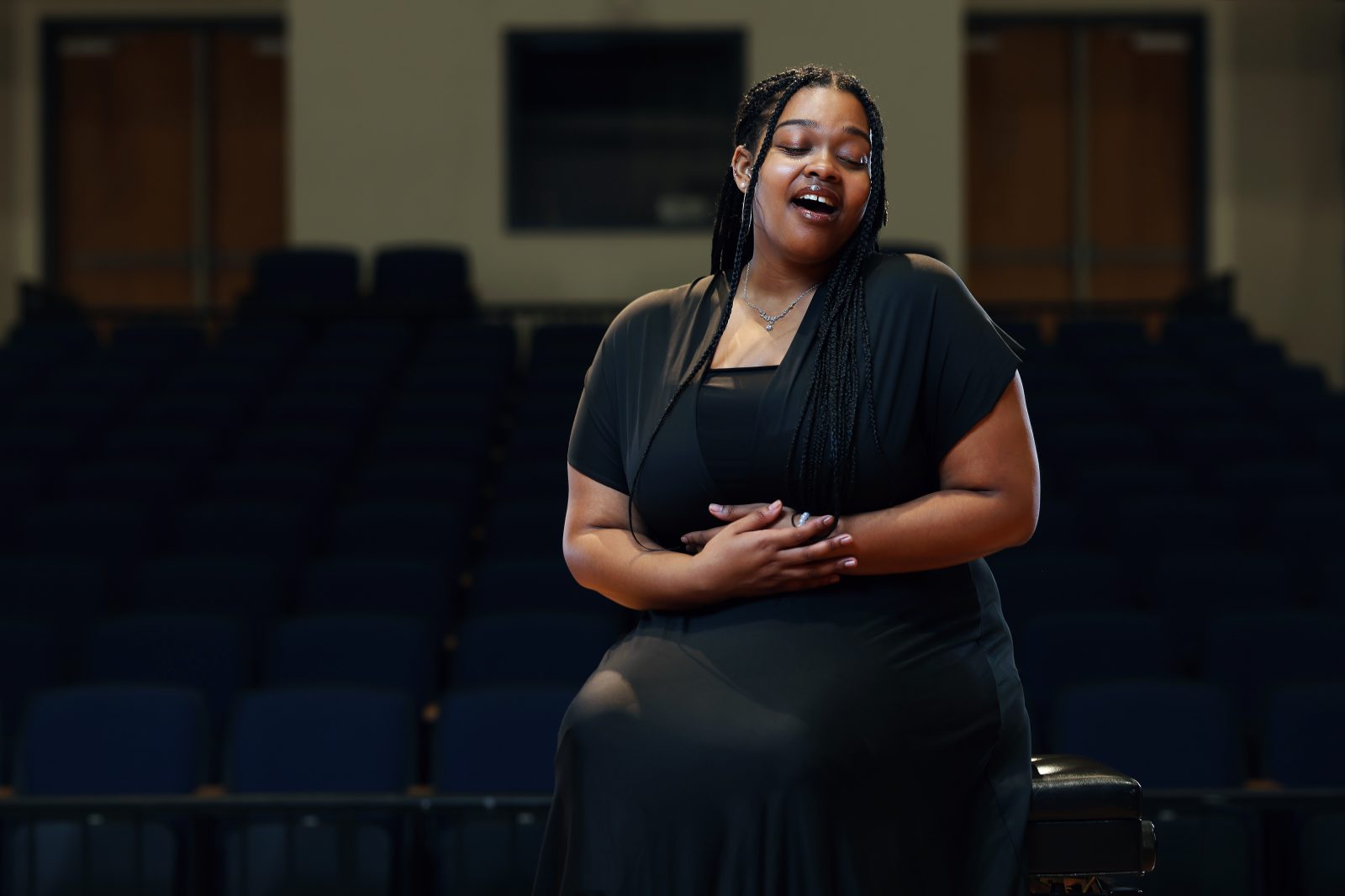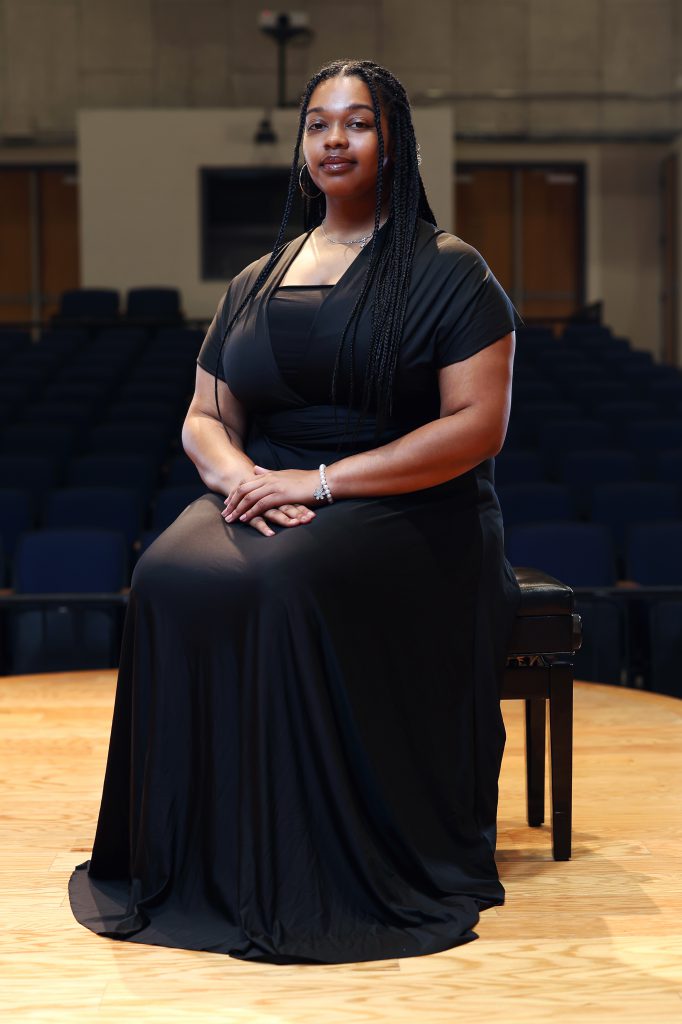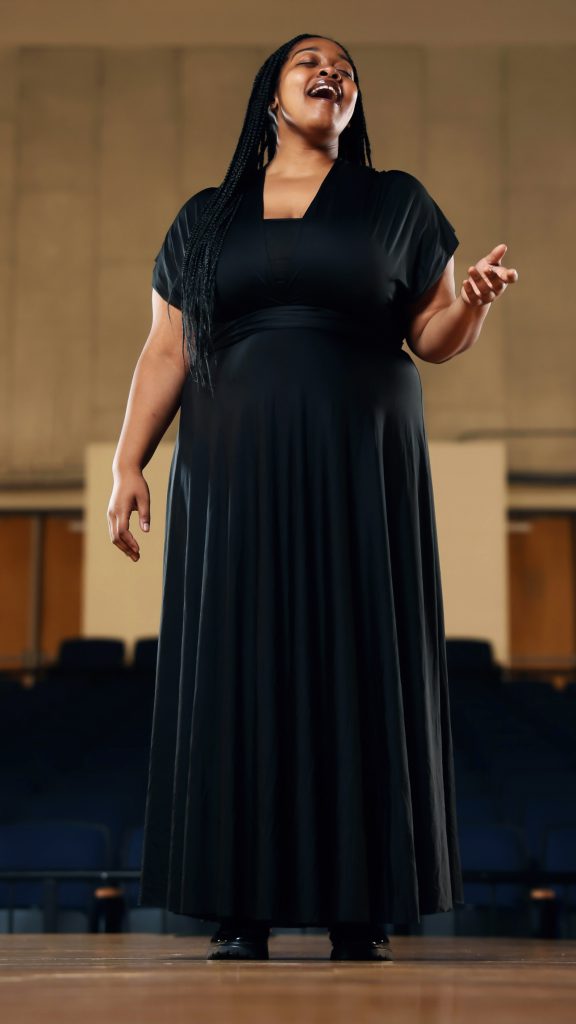By William H. Kelly III
(JACKSON, Miss.) – Jackson State University’s (JSU) Department of Music is named a 2024-2025 HBCU partner of the Denyce Graves Foundation’s Shared Voices program. The flagship initiative pairs HBCUs with the top conservatories and schools of music in the United States.
“The Denyce Graves Foundation really has an overarching goal of increasing the presence and the representation of artists of color in the classical world. Denyce Graves herself is a groundbreaking artist. I get star-struck when I talk about her,” said Dr. Lisa Beckley-Roberts, chair for the Department of Music. “I’m so excited about the possibility of meeting her at one of our meetings. Her talent has opened doors for herself as well as classical vocalists of color all over the world, and we are thrilled to now be a part of that legacy.”
Through classes, individual lessons, coaching, rehearsals, performances, and peer-to-peer exchanges, participants will have access to expand their cultural horizons, develop networks, and gain new insights into potential opportunities for a fulfilling career. These singers will take ownership of their career trajectories in a classical vocal arts landscape and one that reflects the diversity of the world.

JSU’s Director of Opera and Musical Theater, Phyllis Lewis-Hale, DMA, was selected as a faculty mentor for the Shared Voices Program. The assistant professor of music will occasionally travel with the cohort and participate in virtual workshops and other training initiatives through the program.
Kaytie Jeffries said she is proud to represent Jackson State University as a student in the Shared Voices program after a successful audition and essay. The senior vocal performance scholar said that this opportunity has reinforced the need and value of Black representation and diversity in the world of music with an emphasis on classical music.
From July 7-14, Jeffries had the opportunity to travel to Wethersfield, New York, for one of many immersive workshops and training in the Shared Voices program. She thanks professors such as Lewis-Hale for their dedication to the craft.
“When we went to New York, they really meant the word immersive. I had to rely on all of the training, all the theory, and all of the performance practice I received at Jackson State to be able to get up and spend an entire day doing coachings and everything that culminated into a concert,” said Jeffries. “I thought about everything my professors taught me and everything I’ve gained from my organizations like MADDRAMA. It’s helped me blossom. Our mission is to educate and entertain, and I feel like now I’m doing exactly that when I’m on stage.”
A conservatory of music is an institution for education in musical performance and composition. Originally designed to train musicians for public performance, the conservatory eventually expanded the curriculum to include composition, instrumental and vocal technique and acting. The benefits of attending a music conservatory include the ability to focus specifically on your major, opportunities to perform in full-length productions, and receive weekly one-on-one lessons and coaching, along with numerous performance opportunities.
Music conservatory partners have included programs such as The Juilliard School, Oberlin Conservatory of Music, Johns Hopkins University, and Manhattan School of Music. HBCU partners have included institutions such as Fisk University, Howard University, Morgan State University, and Morehouse College.
###









